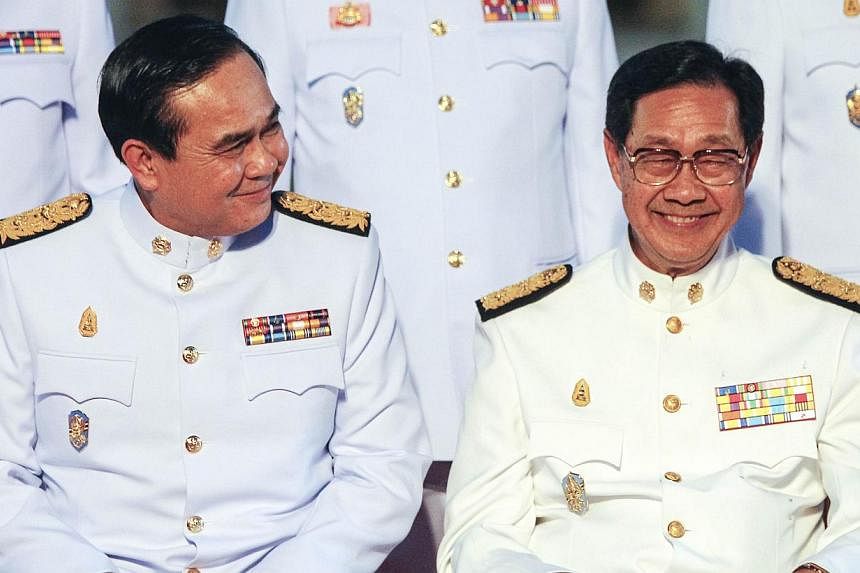THERE are certain actions that are taken in the best interests of the nation, and that people will naturally come around to support if a leader explains them properly.
That, in a nutshell, is how Thailand's Deputy Prime Minister Pridiyathorn Devakula sees his mission now, as he attempts to steer Asean's second-largest economy out of the doldrums brought on by seven months of political unrest prior to the May military coup.
Speaking in his hotel suite in Singapore before taking the stage at the Forbes Global CEO Conference on Wednesday, the former central bank governor methodically reels off the strengths of the Thai economy: dynamic entrepreneurs who venture abroad on their own steam, a competitive agricultural sector, as well as a world leader in construction materials and seafood products.
But the economy has at the same time been hobbled by an unwieldy tax system, and energy subsidies which skew consumption and make liquefied petroleum gas about one-third cheaper than that in impoverished neighbouring Laos, he notes.
Energy subsidies need to be cut. And his government - being unelected and dominated by the military - exists to carry out difficult but important tasks like that.
"We are here not to be elected. We are here to do the things that elected politicians don't dare to do," he declares. In fact, "I know that they (the politicians) would love to have us do it, so that when they come in, they would not have to do it".
He has nothing against elections, he would say later at the conference, where he would again extol the dynamism of the Thai economy.
"We have to honour (people's) right of election. I am pretty sure that whoever wins and comes back in the next election, they won't dare (be that corrupt)."
To be fair, many of the policies put forth by the previous Puea Thai party-run government were "not that bad". But they were brought down by corruption, he says.
Critics point out that it is a half-truth, that it was Thailand's royalist elite and middle class who engineered the street protests that paralysed the government for months.
But Mr Pridiyathorn is confident in the supremacy of his logic.
"There is nothing difficult because what we are doing is for the interests of the nation," he tells me. "You simply have to explain to the people. And the Thai people are not that dumb… they would agree."
In the same way, he brushes off recent attempts by a civil society group to get a court injunction against the auction of concessions to explore for oil and gas, which the government says is necessary to secure future supplies.
"This is a silly injunction (attempt) anyway. How could you injunct the thing, which is against the interests of the country?"
The non-governmental organisations, he says, "just bark. Don't do anything".
Halfway through the interview, he admonishes me.
"I think you are absorbing a lot of habits of Thai press, the way you ask questions," he says sternly. "You are not supposed to provoke the one you interview… okay?"
Later, though, he acknowledges: "If you become a public figure, you must understand that people have the right to criticise you.
"And you have the right to explain to them."


